Remove Consactines.com. The Consactines.com pop-up is fake. Consactines.com tricks you into subscribing to push notifications to send out unwanted Consactines.com push notifications that look like advertisements or pop-ups.
If your Windows or Mac computer, Android, or iOS phone shows advertisements from Consactines.com, you have allowed notifications from this scam website. Notification is a legitimate web browser functionality that Consactines.com abuses. Consactines.com displays a fake message to convince you to click the Allow button in your web browser.
Read more below on how it works.
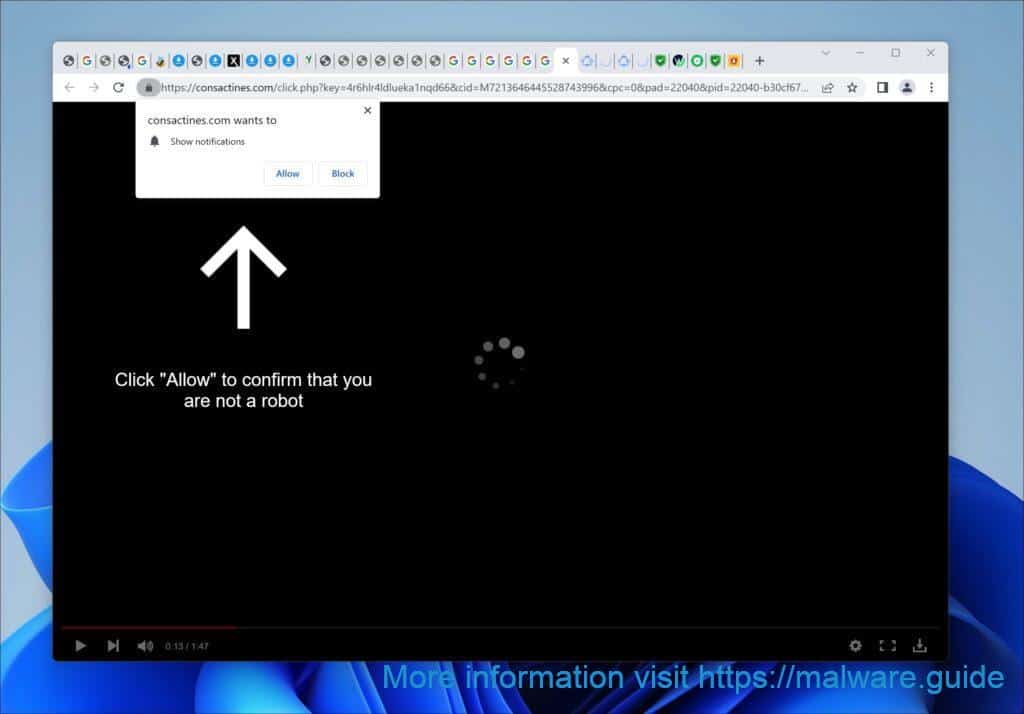
The purpose of fake Lpmxp11095.com push notifications sent out by malicious advertising networks is to deceive you into clicking on them, which can lead to several undesirable outcomes, for example. One everyday use of fake push notifications is to generate traffic to scam websites or phishing sites, which can then be used to steal personal information or infect the user’s device with malware.
Another use is to promote unwanted or malicious software by tricking users into downloading or installing it. This can include adware, spyware, or other malicious software that can compromise the user’s device and privacy. In some cases, fake push notifications may also generate revenue for malicious advertising networks by tricking users into clicking on ads or subscribing to paid services.
Choose your web browser and follow the Consactines.com removal instructions.
 Remove Consactines.com from Google Chrome
Remove Consactines.com from Google Chrome
Open the Google Chrome browser. In the address bar, type: chrome://settings/content/notifications
or follow the steps below.
- Open Google Chrome.
- In the top-right corner, expand the Chrome menu.
- In the Google Chrome menu, click on Settings.
- At the Privacy and Security section, click on Site settings.
- Next, click the Notifications settings.
- Remove Consactines.com by clicking the three dots on the right next to the Consactines.com URL and Remove.
 Remove Consactines.com from the Android
Remove Consactines.com from the Android
- Open Google Chrome
- In the top-right corner, find the Chrome menu.
- In the menu, tap Settings, and scroll down to Advanced.
- In the Site Settings section, tap the Notifications settings, find the Consactines.com domain, and tap on it.
- Tap the Clean & Reset button and confirm.
Protect your mobile device with Malwarebytes.
 Remove Consactines.com from Firefox
Remove Consactines.com from Firefox
- Open Firefox
- In the top-right corner, click the Firefox menu (three horizontal stripes).
- In the menu, click on Options.
- In the list on the left, click on Privacy & Security.
- Scroll down to Permissions and then to Settings next to Notifications.
- Select the Consactines.com URL from the list, and change the status to Block, save Firefox changes.
 Remove Consactines.com from Edge
Remove Consactines.com from Edge
- Open Microsoft Edge.
- Click on the three dots in the top right corner to expand the Edge menu.
- Scroll down to Settings.
- In the left menu, click on Site permissions.
- Click on Notifications.
- Click on the three dots on the right of the Consactines.com domain and Remove them.
 Remove Consactines.com from Safari on Mac
Remove Consactines.com from Safari on Mac
- Open Safari. In the top left corner, click on Safari.
- Go to Preferences in the Safari menu and open the Websites tab.
- In the left menu, click on Notifications
- Find the Consactines.com domain and select it, and click the Deny button.
Continue to the next step, where you need to remove adware from your Windows computer.
This guide will provide instructions on removing adware and malware from Windows and Mac. Scroll down for Mac instructions.
![]() Uninstall Consactines.com adware from Windows
Uninstall Consactines.com adware from Windows
Remove adware with Malwarebytes
Malwarebytes is a complete malware removal tool for Windows.
Malwarebytes is free to use.
The Consactines.com webpage redirects your web browser to misleading advertisements that encourage adware applications.
Make sure to clean your computer from adware with Malwarebytes thoroughly. Malwarebytes are an essential tool in the fight against malware.
Install Malwarebytes, and follow the on-screen instructions. Then, click Scan to start a malware scan.
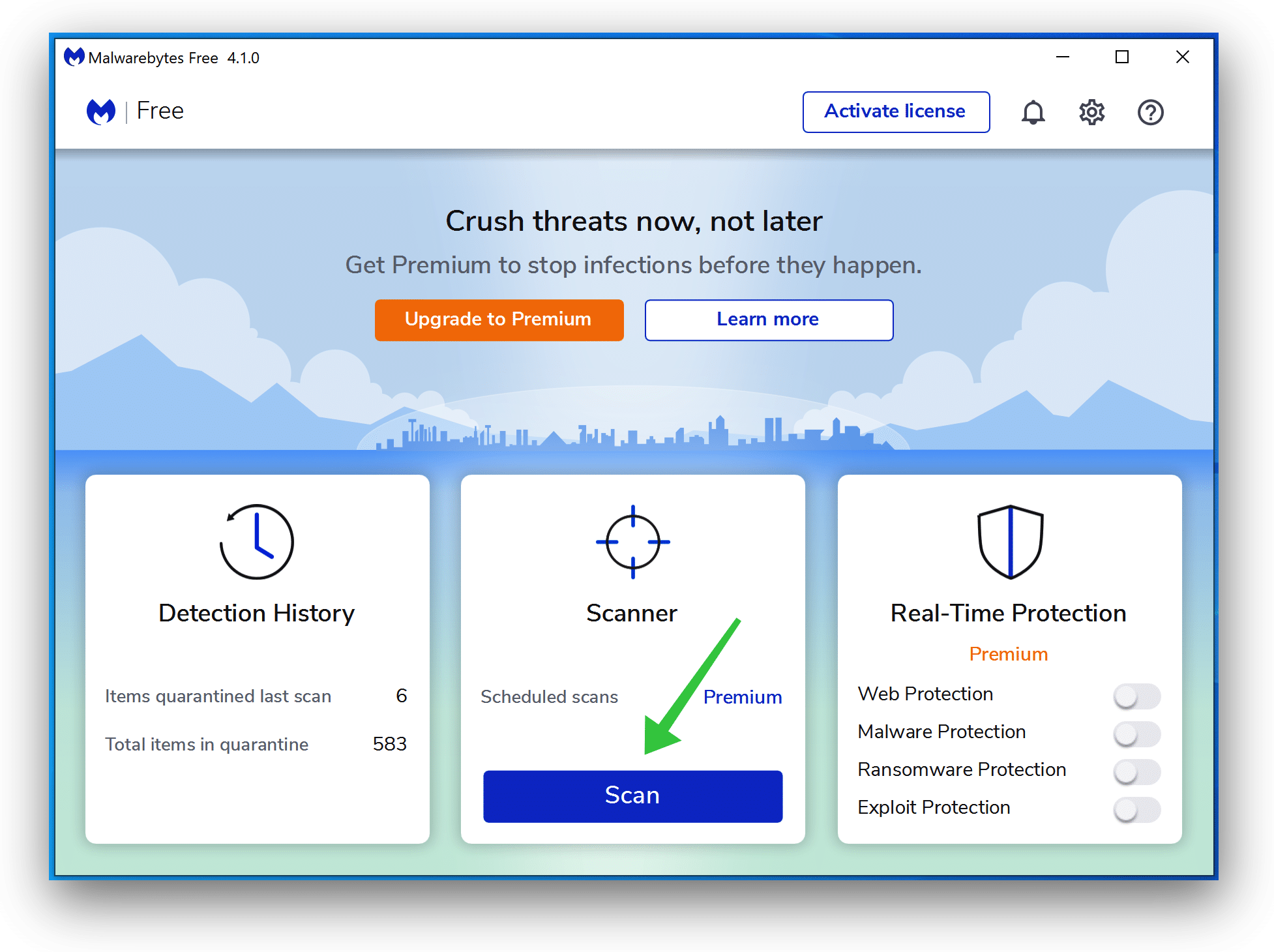
Wait for the Malwarebytes scan to finish. Once completed, review the push notification detections.
Click Quarantine to continue.
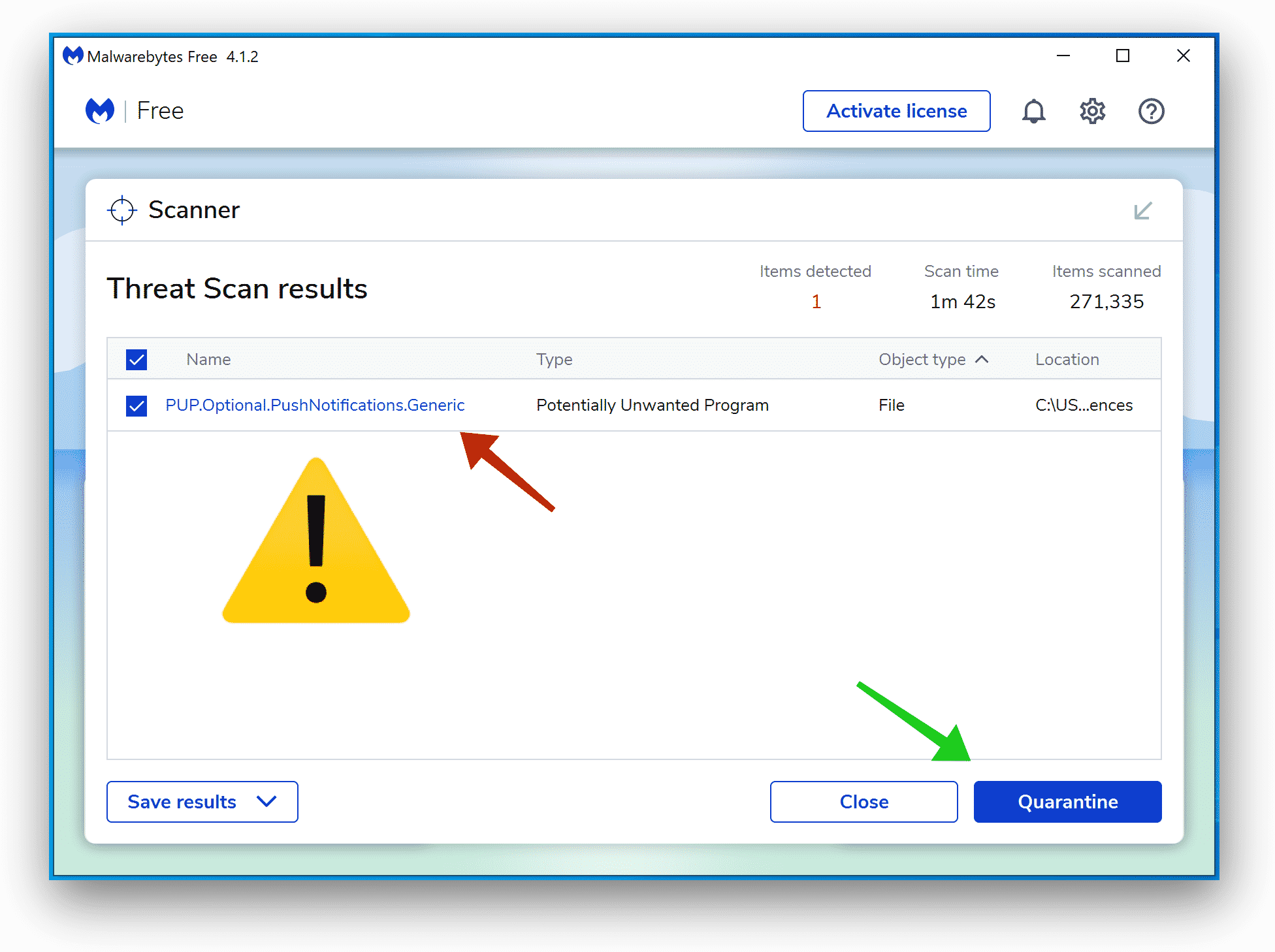
Reboot Windows after all the detections are moved to Quarantine.
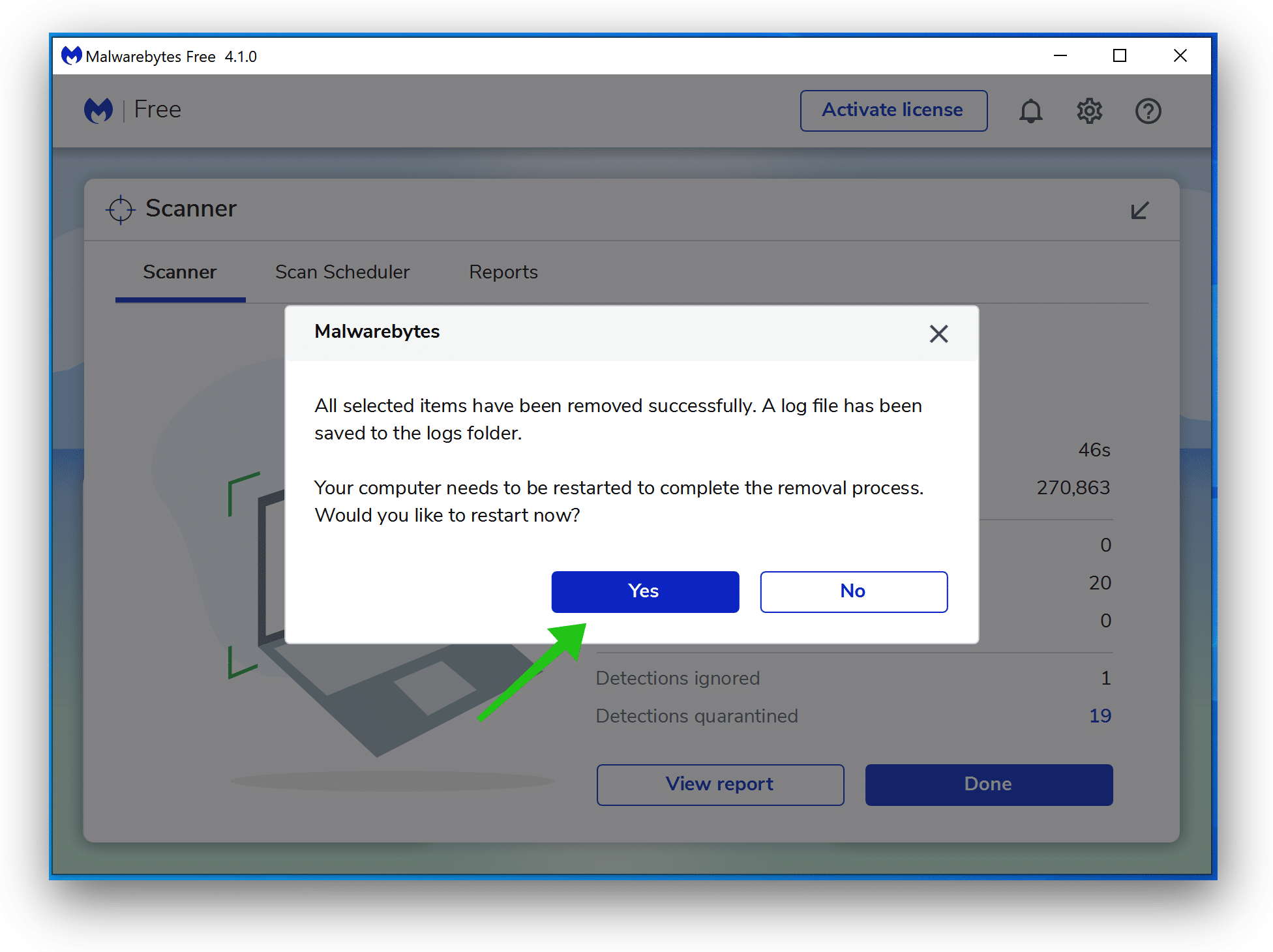
Continue to the next step to remove unwanted programs and malware
Remove unwanted programs and malware with Sophos HitmanPRO
In this malware removal step, we will start a second scan to ensure no malware remnants are left on your computer. HitmanPRO is a cloud scanner that scans every active file for malicious activity on your computer and sends it to the Sophos cloud for detection. In the Sophos cloud, both Bitdefender antivirus and Kaspersky antivirus scan the file for malicious activities.
When you have downloaded, HitmanPRO, install the HitmanPro 32-bit or HitmanPRO x64. Downloads are saved to the Downloads folder on your computer.
Open HitmanPRO to start the installation and scan.
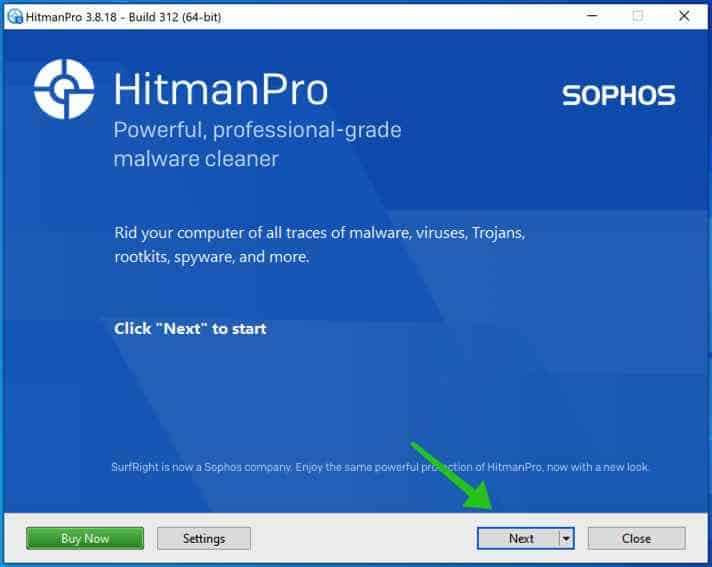
Accept the Sophos HitmanPRO license agreement to continue. Read the license agreement, check the box, and click on Next.
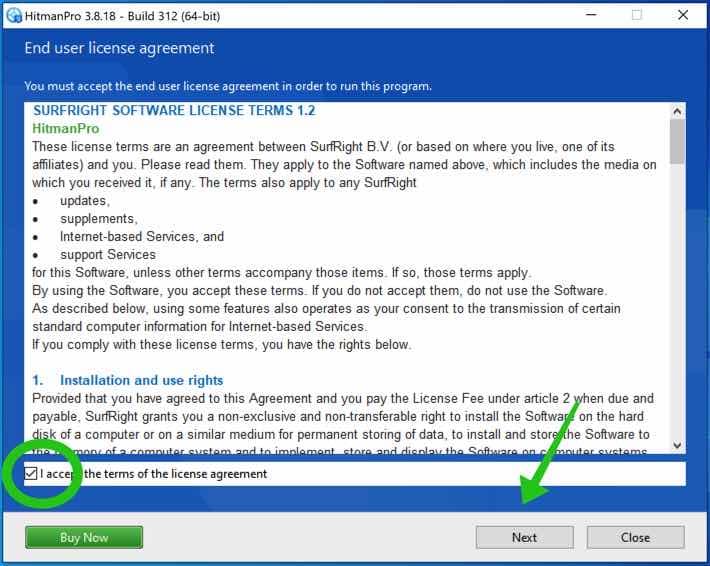
Click the Next button to continue Sophos HitmanPRO installation. Make sure to create a copy of HitmanPRO for regular scans.
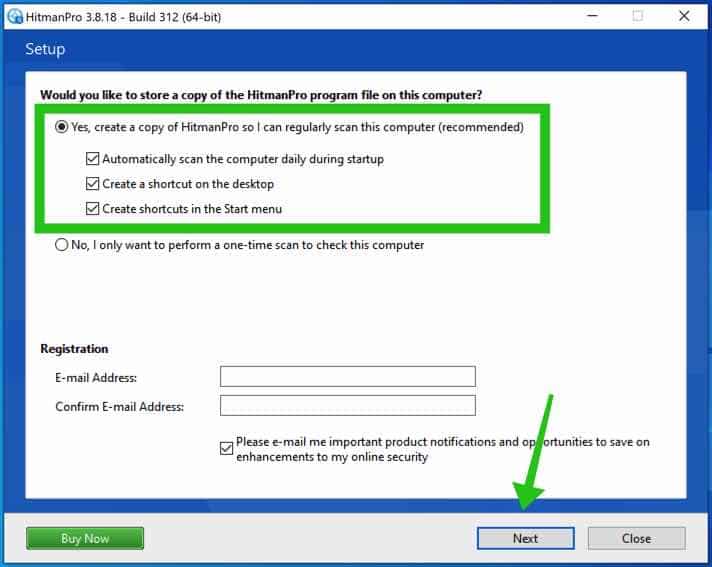
HitmanPRO begins with a scan. Then, wait for the antivirus scan results.
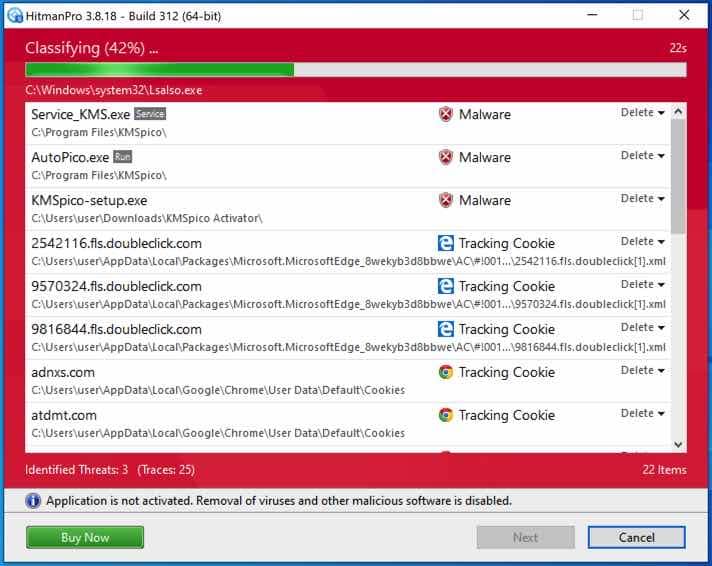
After the scan, click Next and activate the free HitmanPRO license. Next, click on Activate Free license.
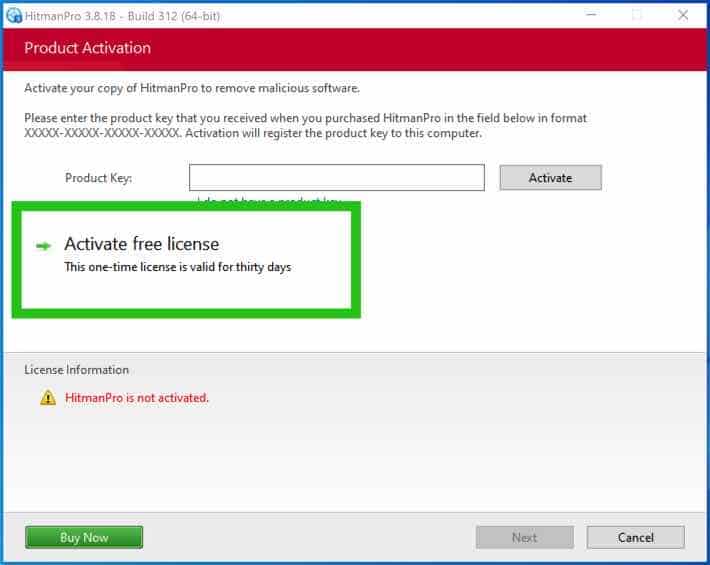
Enter your e-mail for a Sophos HitmanPRO free thirty days license. Click on Activate.
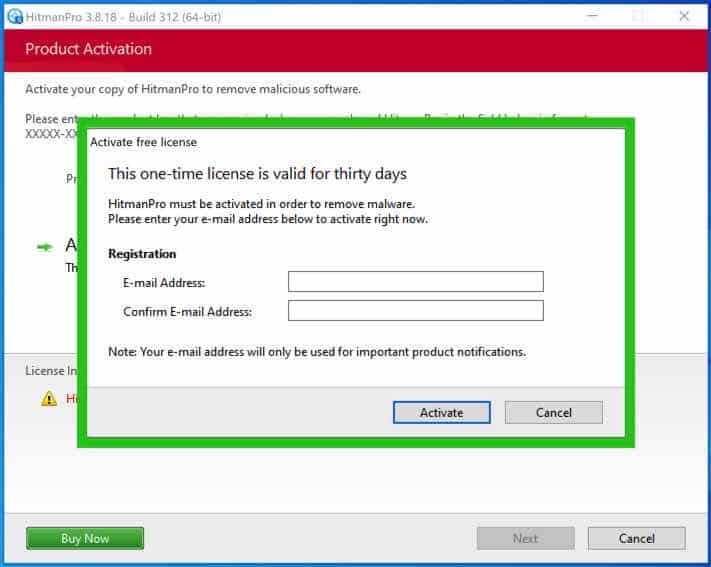
The free HitmanPRO license is successfully activated.
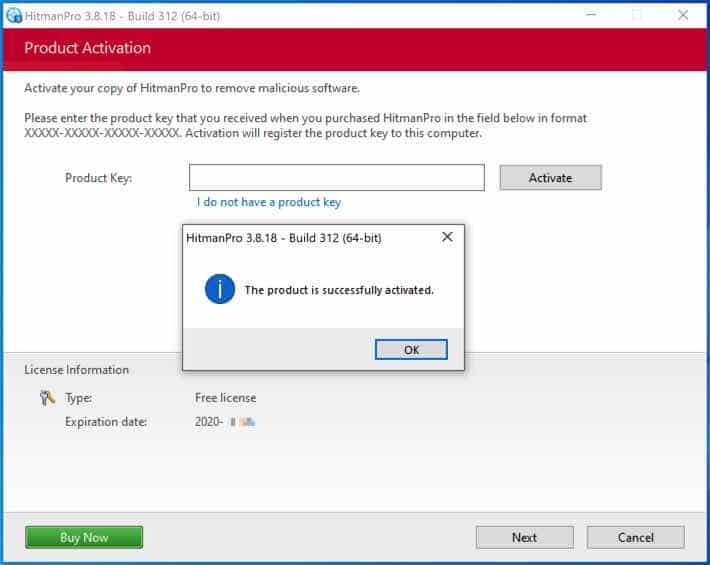
You’ll be presented with the malware removal results. Click Next to continue.
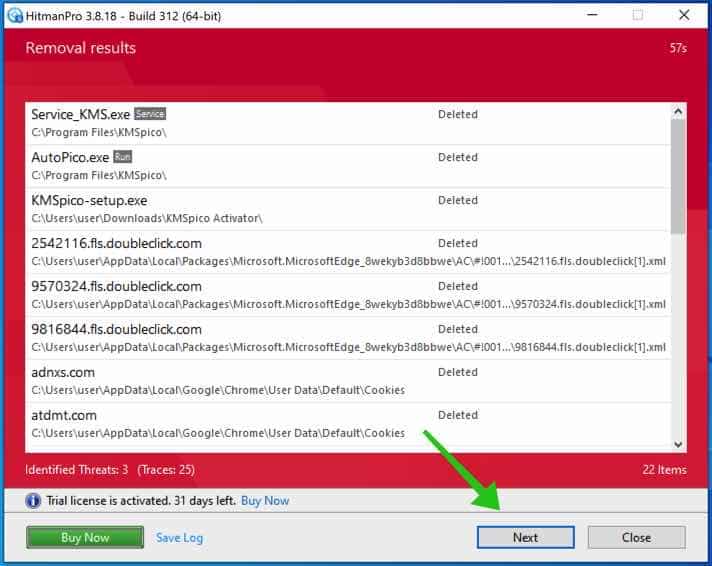
Malicious software was partially removed from your computer. Restart your computer to complete the removal.
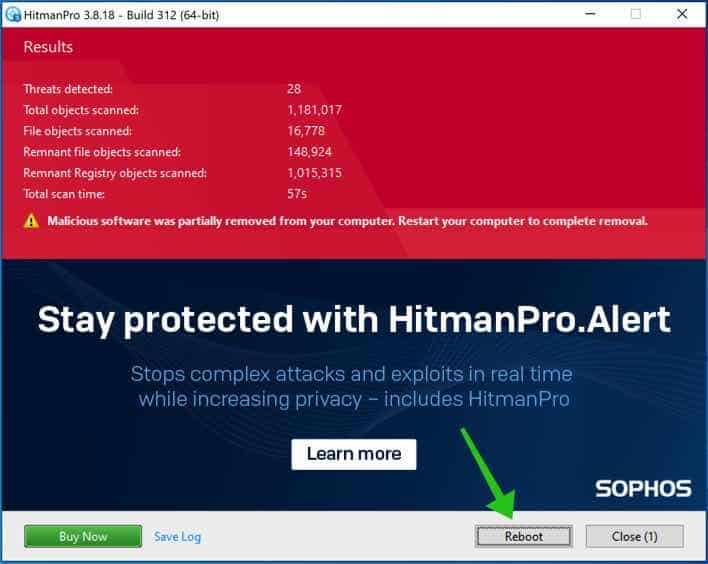
Bookmark this page before you reboot your computer to continue the next Consactines.com removal steps.
Continue to the next step to remove unwanted browser settings from Chrome, Firefox, or Microsoft Edge.
Uninstall the extension from Google Chrome.
Open the Google Chrome browser. In the address bar, type: chrome://extensions/.
Verify all listed browser extensions. If you notice an installed extension you do not know or do not trust, click the Remove button to uninstall the extension from Google Chrome.
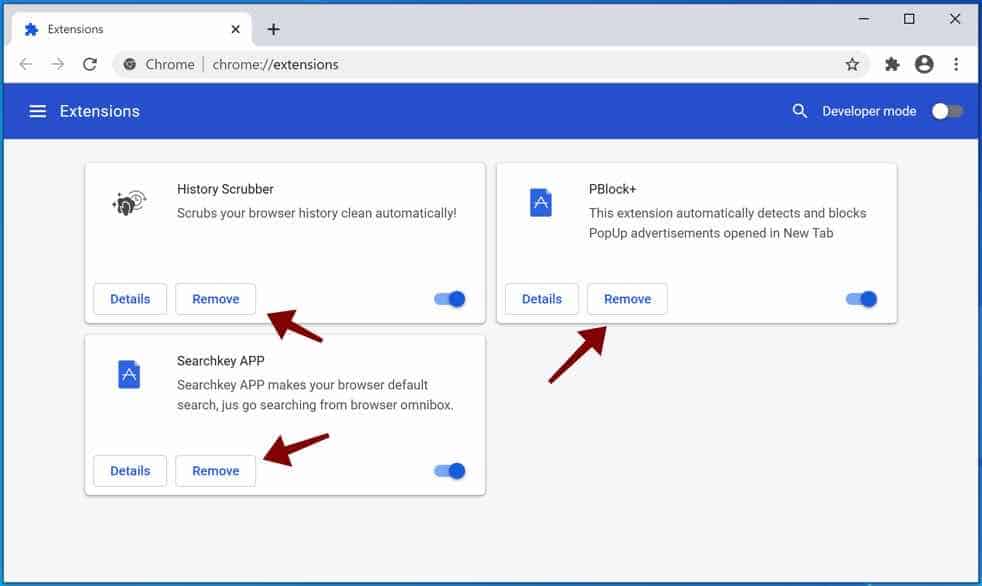
Uninstall the add-on from Mozilla Firefox.
Open the Firefox browser. In the address bar, type: about addons. Verify all installed Firefox add-ons.
If you notice an installed add-on you do not know or do not trust, click the Remove button to uninstall the add-on from Firefox.
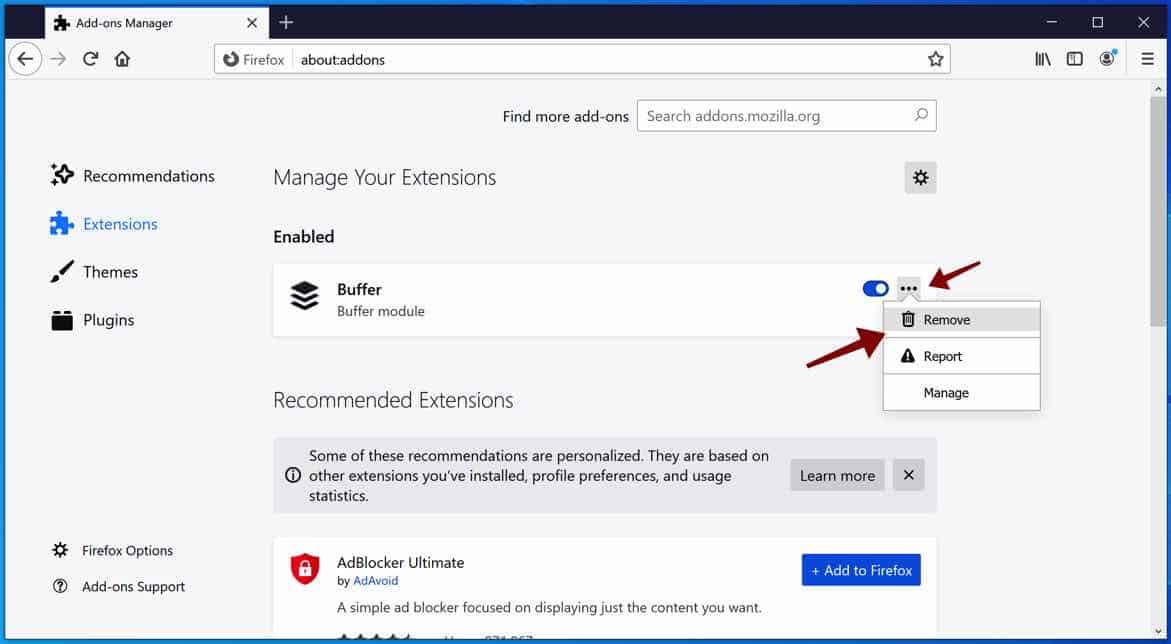
Uninstall the extension from Microsoft Edge.
Open the Edge browser in the address bar and type: edge://extensions.
Verify all installed Microsoft Edge extensions. If you notice an installed extension you do not know or do not trust, click the Remove button to uninstall the extension from Microsoft Edge.
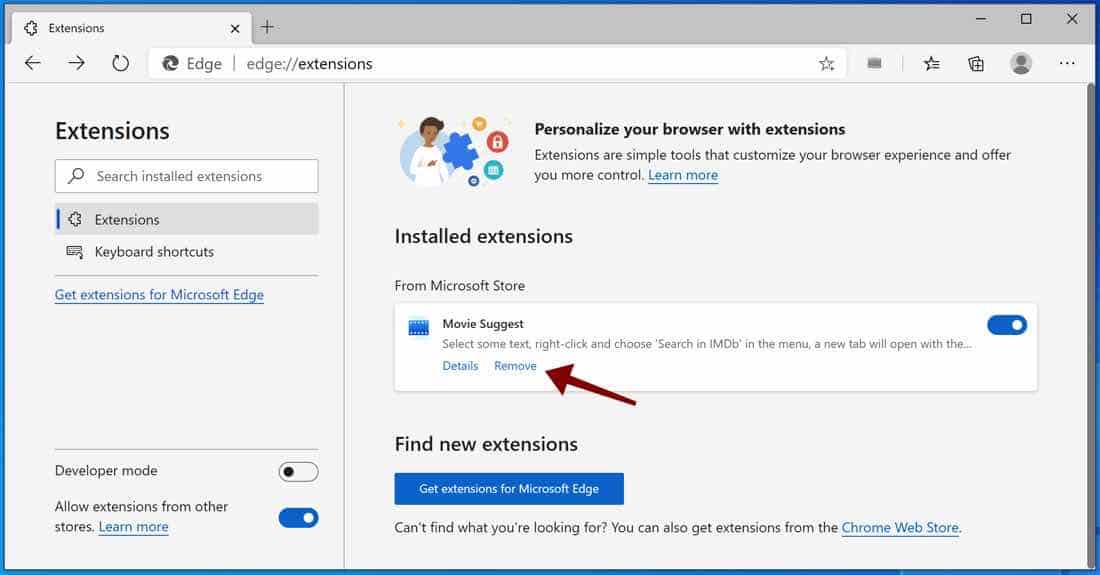
Continue to the next step to reset the Chrome, Firefox, or Microsoft Edge web browser (optional)
If you still have problems with the web browser, consider a complete web browser reset.
Reset Google Chrome
In the Google Chrome address bar type, or copy and paste: chrome://settings/resetProfileSettings
Click the Reset Settings button to reset Google Chrome to the default settings fully. When you are done, restart the Chrome browser.
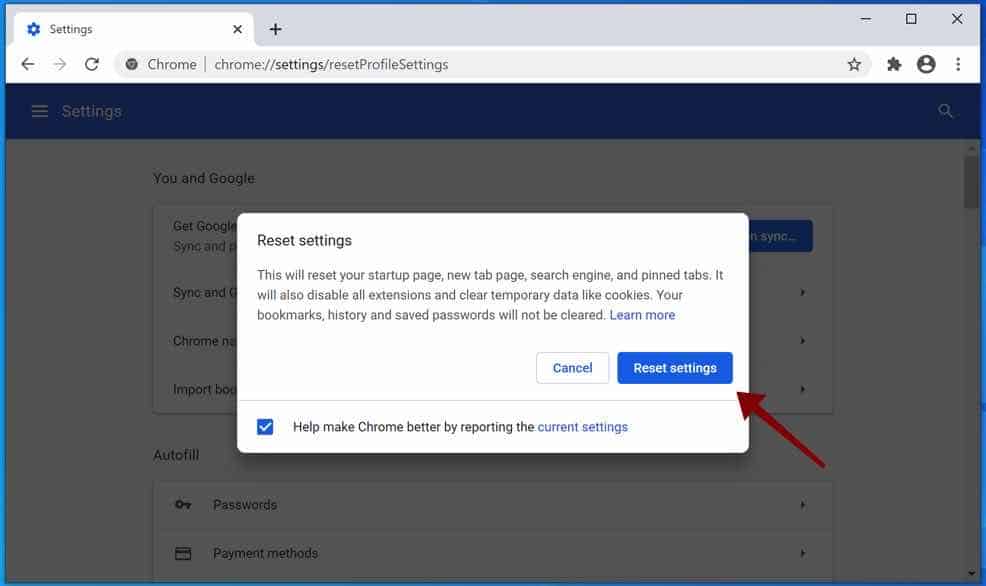
Reset Mozilla Firefox
In the Firefox address bar type, or copy and paste: about:support
Click the Refresh Firefox button to reset Firefox to the default settings fully. When you are done, restart the Firefox browser.
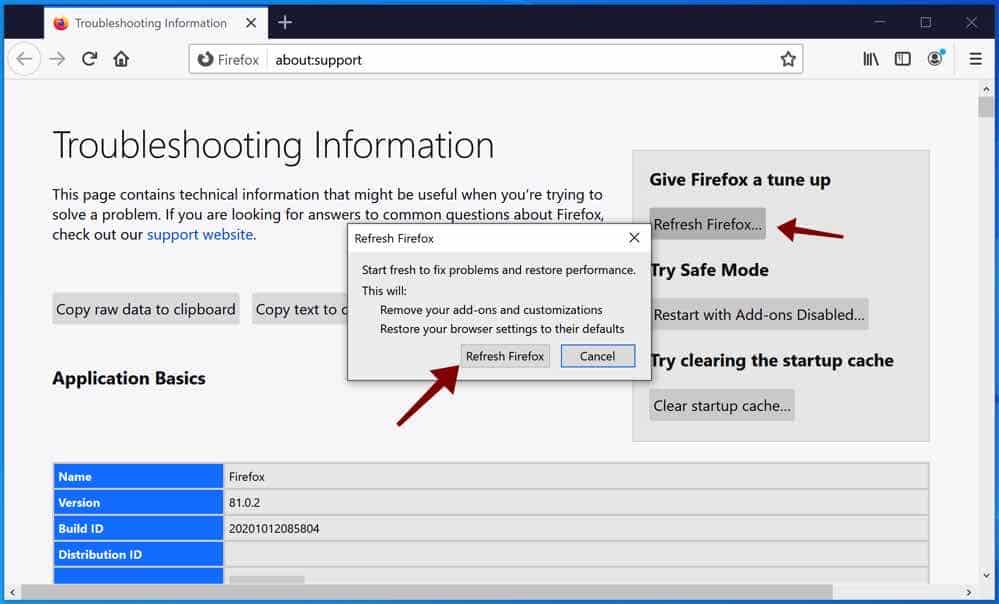
Reset Microsoft Edge
In the Microsoft Edge address bar type, or copy and paste: edge://settings/resetProfileSettings
Click the Refresh button to reset Edge to the default settings fully. When you are done, restart the Microsoft Edge browser.
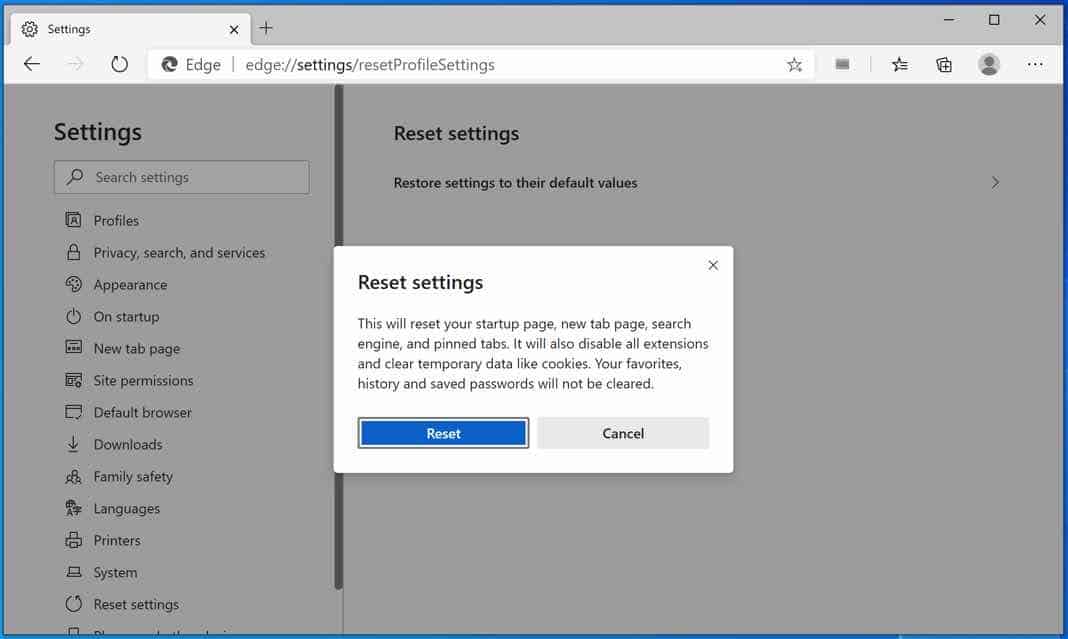
Your Windows computer is now free from adware, malware, and unwanted programs. If you still have problems ask for my help using the comments.
![]() Uninstall Consactines.com adware from Mac
Uninstall Consactines.com adware from Mac
Remove Consactines.com with Malwarebytes for Mac
In this first step for Mac, you must remove adware responsible for the Consactines.com advertisements with Malwarebytes for Mac. Malwarebytes is the best software to remove unwanted programs, adware, and browser hijackers from your Mac. Malwarebytes is free to detect and remove malware on your Mac computer.
Download Malwarebytes (Mac OS X)
You can find the Malwarebytes installation file in the Downloads folder on your Mac. Double-click the installation file to begin.
Follow the instructions in the Malwarebytes installation file. Click the Get Started button.
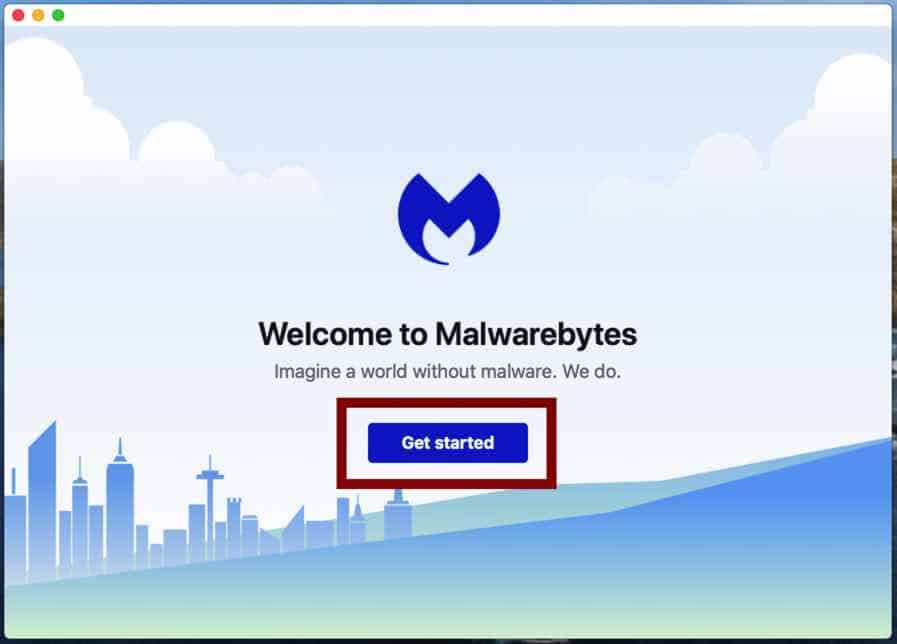
Where are you installing Malwarebytes on a personal computer or a work computer? Make your choice by clicking any of the buttons.
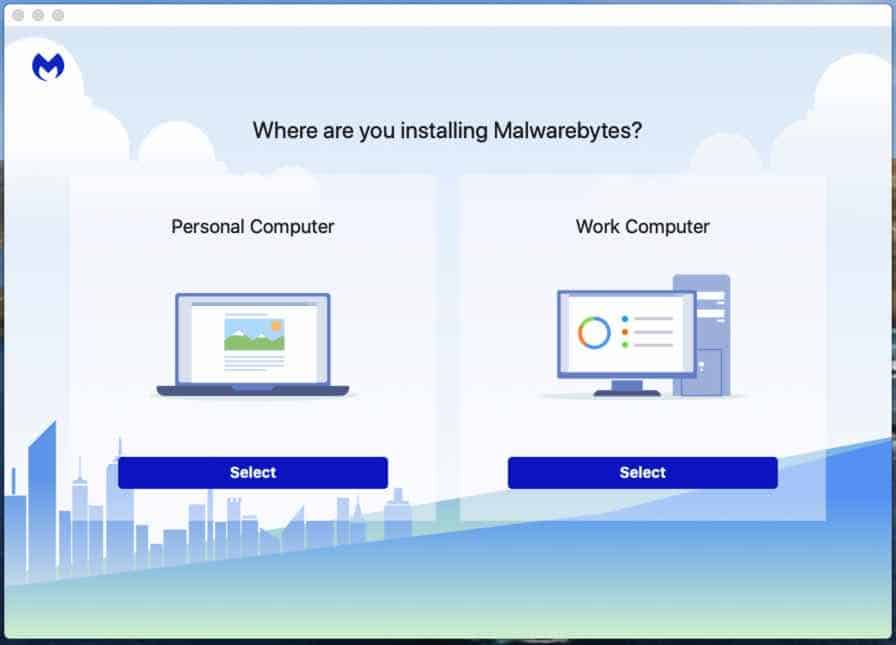
Choose to use either the Free version of Malwarebytes or the Premium version. The premium versions include protection against ransomware and offer real-time protection against malware.
Both free and premium Malwarebytes can detect and remove malware from your Mac.
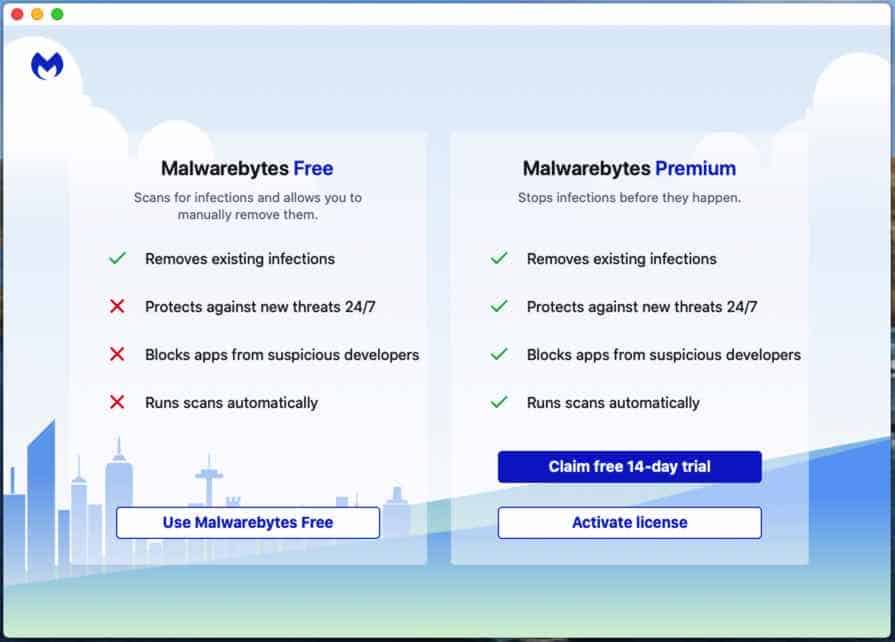
Malwarebytes needs “Full Disk Access” permission in Mac OS X to scan your hard disk for malware. Click Open Preferences.
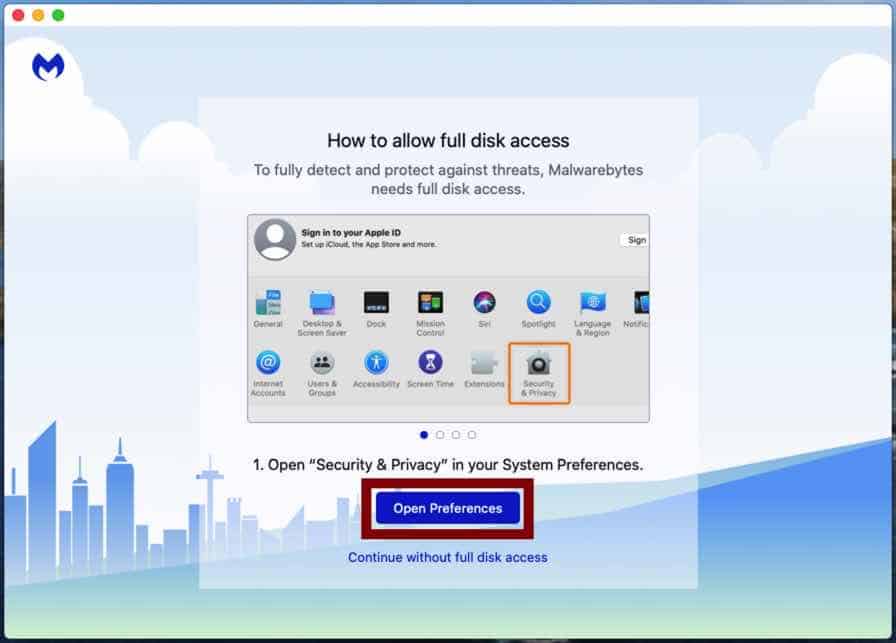
In the left panel, click on “Full Disk Access.” Check the Malwarebytes Protection and close the settings.
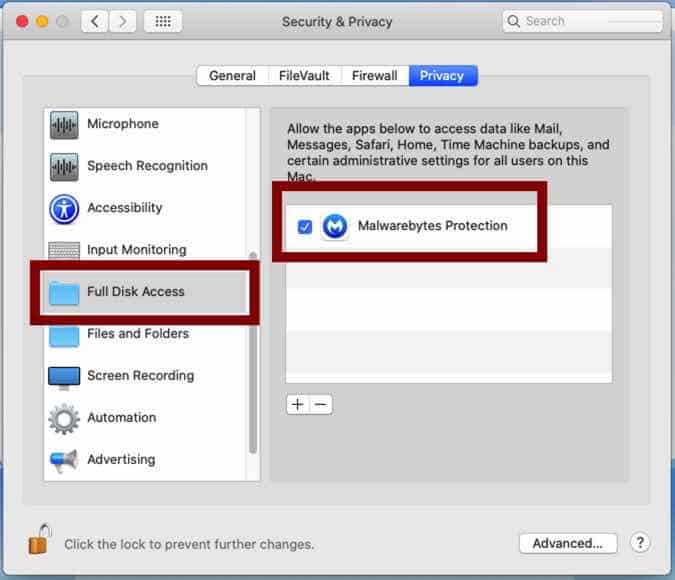
Go back to Malwarebytes and click the Scan button to scan your Mac for malware.
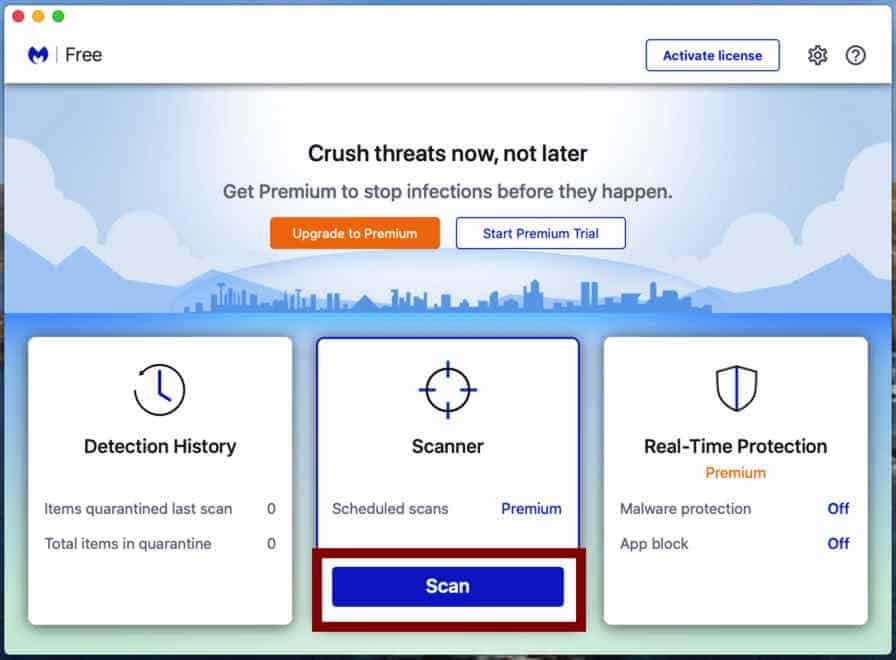
Click on the Quarantine button to delete the found malware.
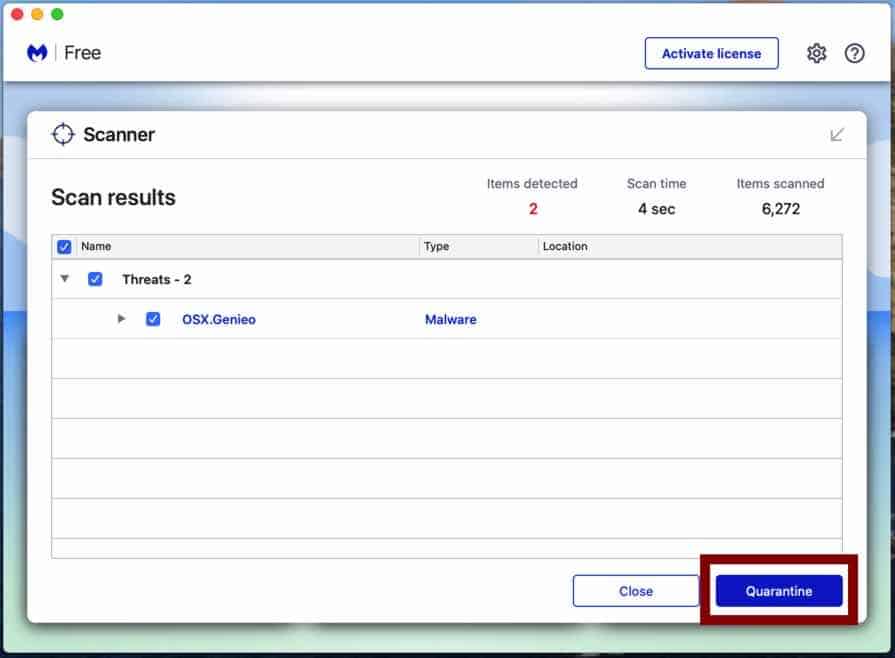
Reboot your Mac to complete the malware removal process.
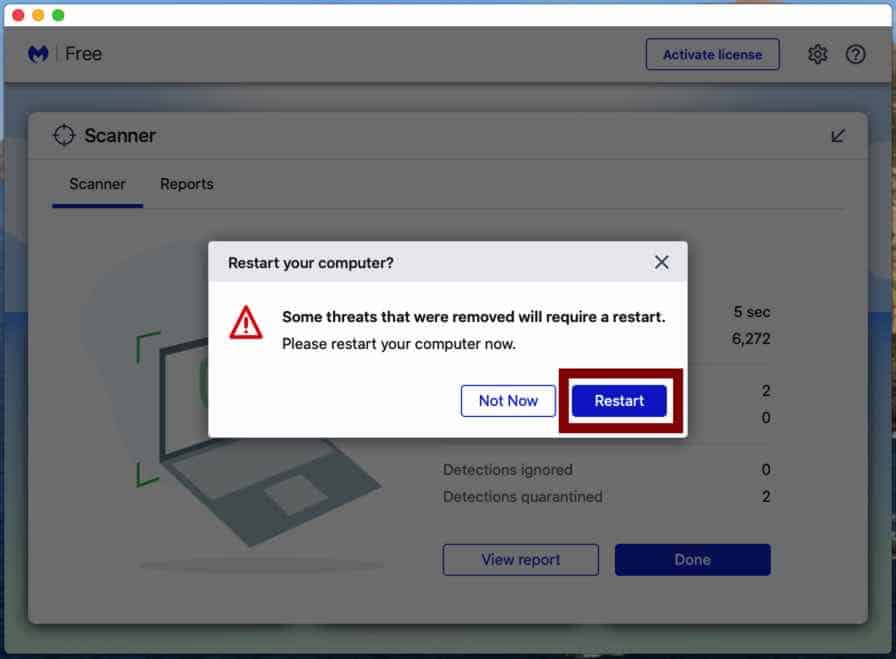
When the removal process is done, continue to the next step.
Continue to the next step to remove unwanted browser settings from Safari, Chrome, or Firefox (Mac)
Uninstall Extension from Safari for Mac
Open the Safari browser. In the top left corner, click on Safari. In the Safari menu, click on Preferences. Open the “Extensions” tab.
Click on the extension you want to remove, check any installed Safari extensions, and click “Uninstall”.
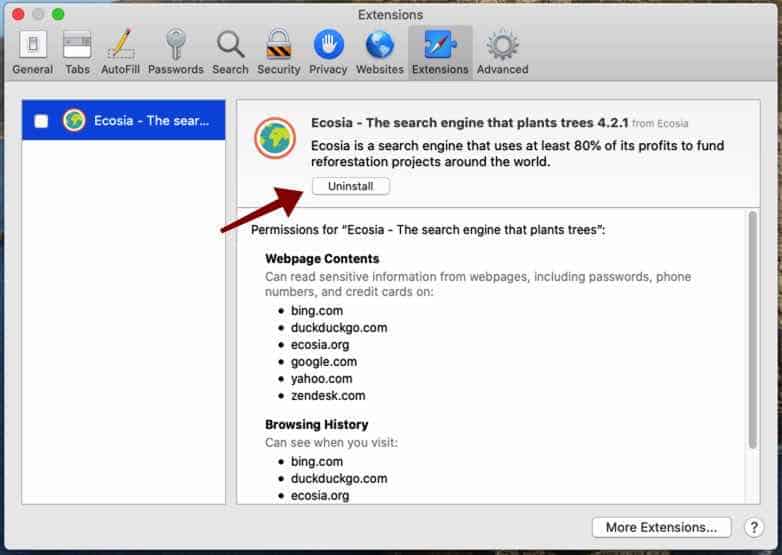
Uninstall Extension from Google Chrome for Mac
Open the Google Chrome browser on Mac. In the address bar, type: chrome://extensions/.
Verify all listed browser extensions. If you notice an installed extension you do not know or do not trust, click the Remove button to uninstall the extension from Google Chrome.
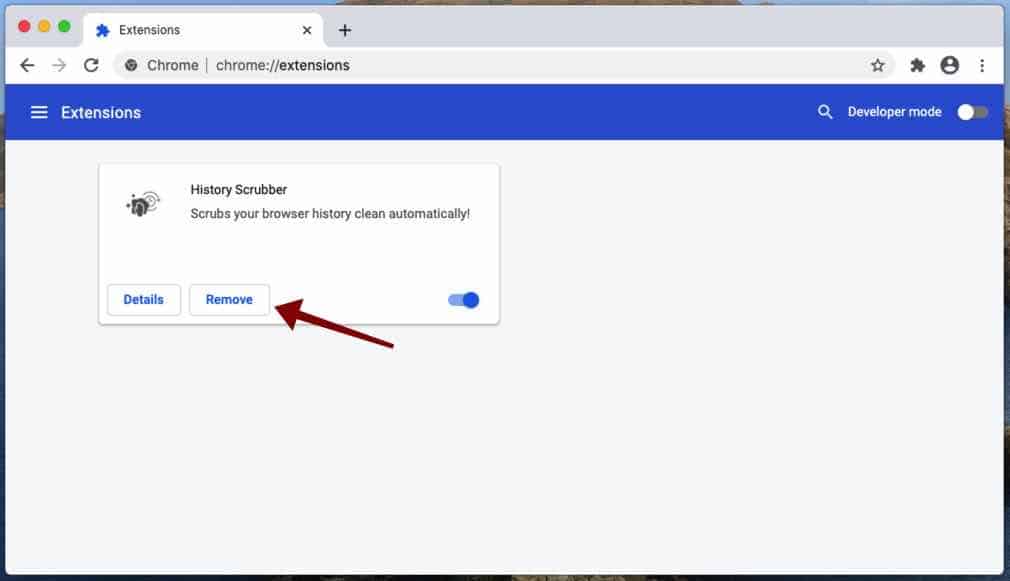
Some malware programs create policy’s to prevent users from resetting browser configurations, such as the web browser’s homepage and the search engine. If you cannot change your homepage or search engine in the Google Chrome browser, you might want to remove the policies created by the malware to restore the browser’s configurations.
Remove unwanted profile from your Mac
First, you need to remove unwanted profiles from your Mac, follow the steps.
Click the Apple symbol () in the top left corner on Mac OS X, click on “Preferences” in the menu bar, and select “Profiles”. If profiles don’t exist, you have no malicious profile installed on your Mac.
Select the “AdminPrefs“, “Chrome Profile“, or “Safari profile” and delete it.
Next, you need to check if policies are created for Google Chrome. Open the Chrome browser. In the address bar, type: chrome://policy.
If policies are loaded into the Chrome browser, follow the steps below to remove the policies.
On the Applications folder on your Mac, go to Utilities and Open the Terminal application.
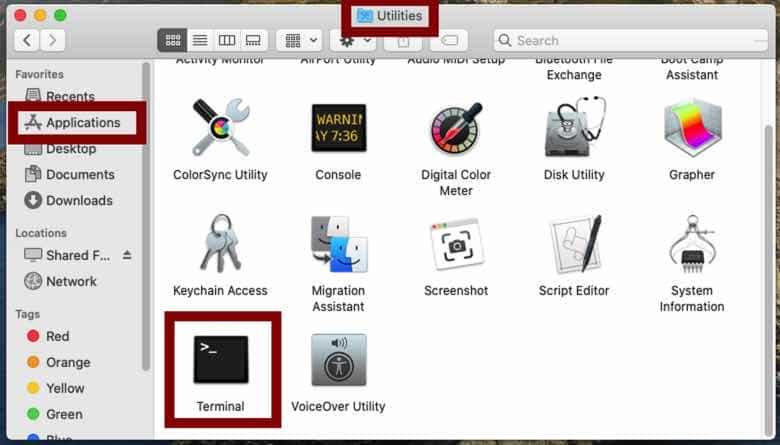
Uninstall Add-on from Mozilla Firefox for Mac
Open the Firefox browser. In the address bar, type: about:addons.
Verify all installed Firefox add-ons. If you notice an installed add-on you do not know or do not trust, click the Remove button to uninstall the add-on from Firefox.
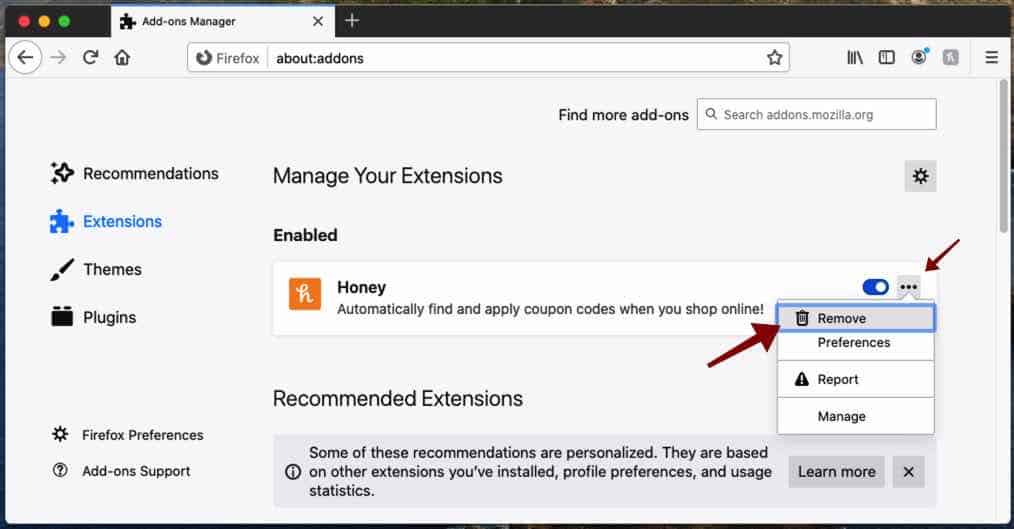
Your Mac should be free of adware, malware, and Consactines.com advertisements. If you still need help, ask for my help in the comments.